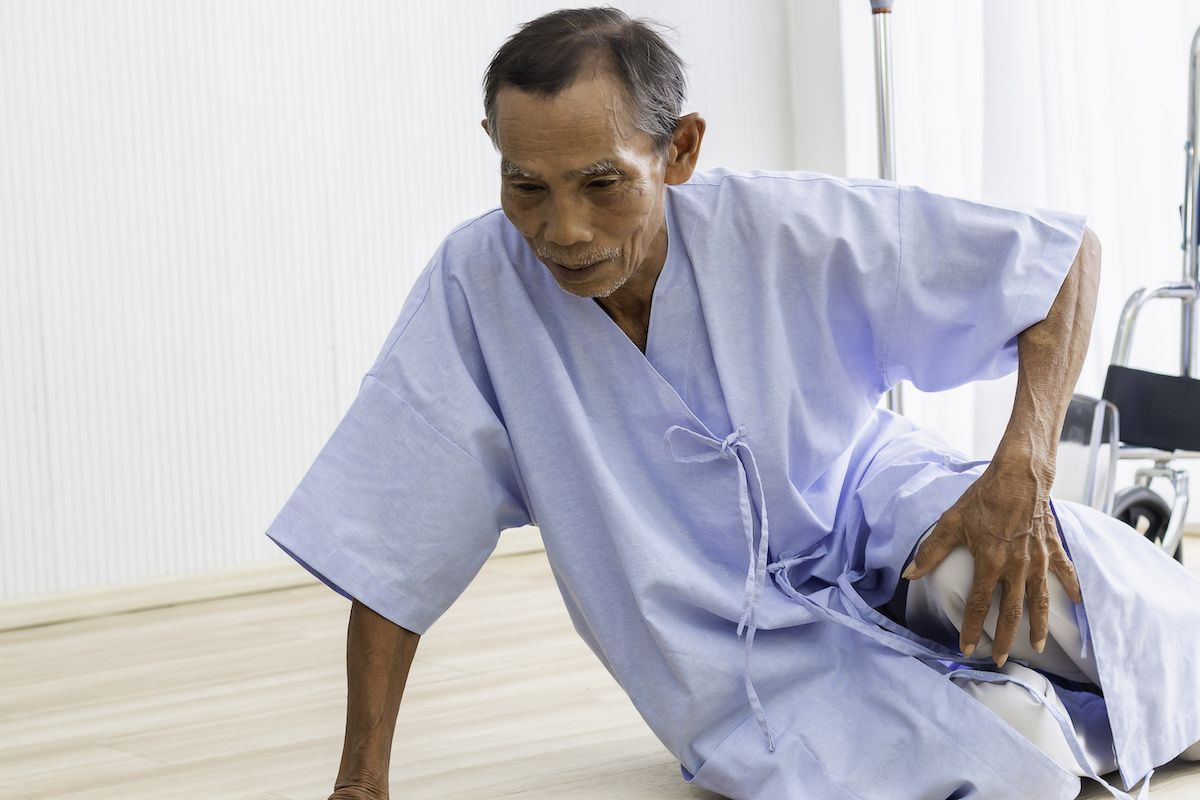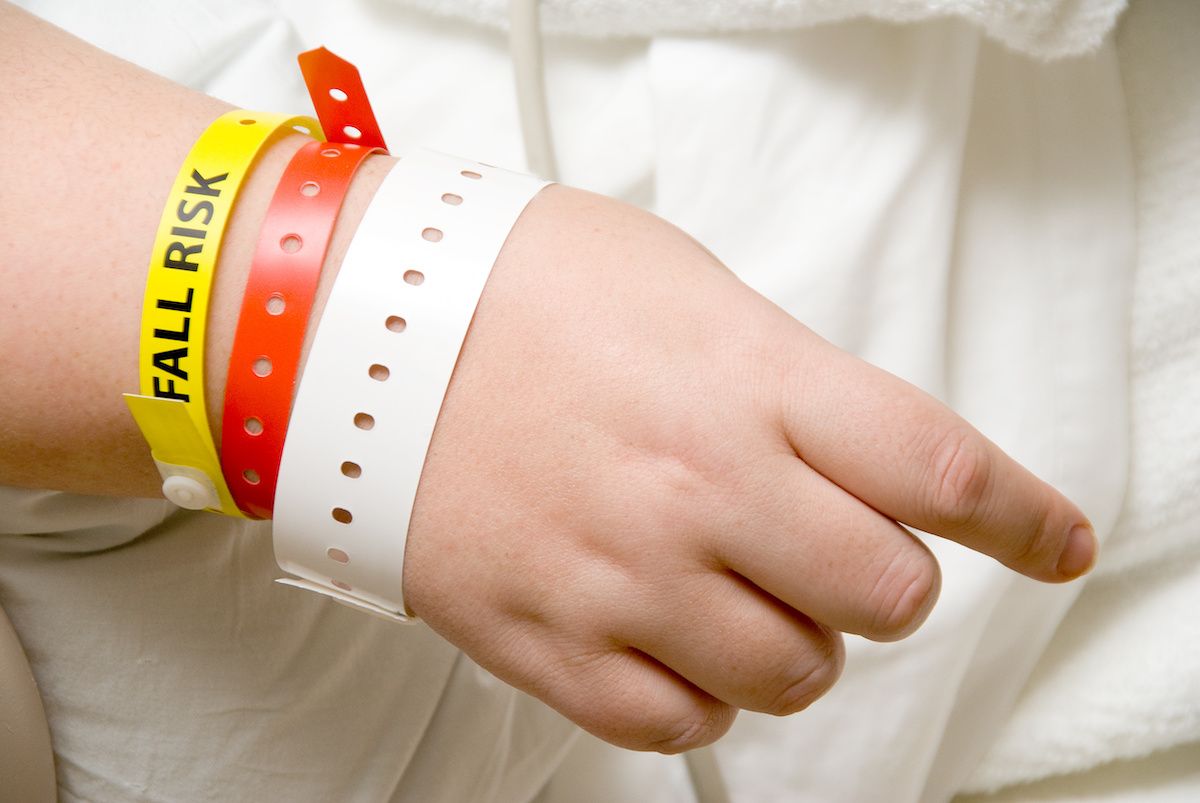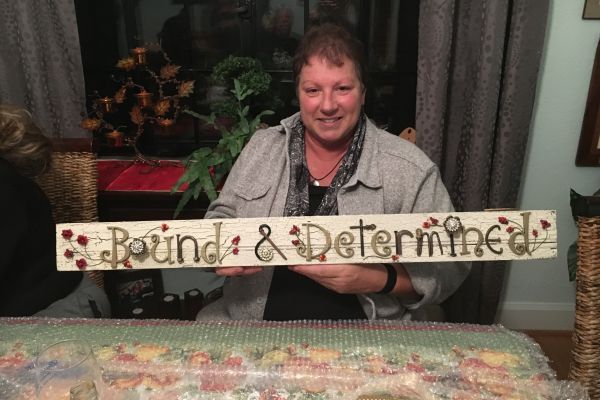A fall can happen anywhere, but falls in the hospital are a serious threat to patient safety and recovery — and they are common. No fall is harmless: Not only can a fall cause physical injury, it can increase the length of your hospital stay, or cause a loss of confidence or increased fear that affects your willingness to move or be active.
Research shows that about a third of the falls that occur in a hospital can be prevented. Here’s what you and your loved ones need to know.
What Is a Fall?
- Accidentally landing on the floor or another object, such as a bed or chair
- Tripping over an object
- Falling to the ground due to dizziness or weakness
- Slipping to the ground slowly from a standing or sitting position
- Losing your balance and grabbing onto a surface or object as you fall to the ground
Cancer Patients at Higher Risk of Injury
Cancer and cancer treatments can increase the chances of serious injury from even a minor fall. Why? Because you may be at higher risk for bleeding (including internal bleeding) and a weakened immune system (which means even a small cut can allow a serious infection to take hold). Roswell Park wants to work with you to take precautions to lower your risk of falls and keep you safe.
Here’s the challenge: Many people do not follow the safety precautions because they don’t think they’re at risk of falling. But once you fall, fear of falling again can quickly lead to a decline in your movement and activity. Less activity means a loss of strength, and weakness means an even higher risk of falling. We often see this cycle in active, independent elderly people who have a fall followed by a rapid decline in their health and quality of life.
But when it comes to falls, advanced age is just one risk factor. See "What Increases Your Risk of Falling?" (below) for a list of other factors that can raise the risk.
What Can You Do to Reduce the Risk?
- If you are an inpatient, remember — “Call, Don’t Fall!” This means you should keep your call light within reach and use it if you need to get out of bed for any reason. Help is seconds away — please wait for help to come!
- ALWAYS tell us if you feel dizzy, weak, lightheaded or unsteady, or if you have fallen.
- After lying down, sit for a few minutes before you stand up, to reduce the risk of dizziness.
- If you have a cane, walker, etc., keep it at your bedside.
- Keep frequently used items, such as glasses and hearing aids, within easy reach. Keep the floor clear of clutter and make sure there’s an easy, clear path to the bathroom. Wear slippers or socks with non-skid bottoms (no floppy slippers, flip-flops, bare feet, etc.).
- DO NOT use your IV pole to help you get into a standing position. Use your hands to push off your mattress to stand up. Be extra careful if you are walking with an IV pole.
What Your Nurses Will Do
Your nurses will develop a safety plan for you that considers your condition, medications, etc. They will ask you to be an active partner in that plan.
They will answer your calls. They will make rounds to check on you and place your bed in a low and locked position. If you are at high risk for falling or injury, they will put a yellow band on your wrist to alert those caring for you or transporting you that they should take extra care to prevent a fall or injury. If needed, they can place an alarm on your bed/chair, assign a sitter to stay with you, or call in physical or occupational therapists to work with you.
If You Are Coming to Roswell Park for an Appointment or Test...
You may need to walk long distances to get to your appointments at Roswell Park, so we recommend:
- If you use our valet parking, our transportation staff at the front door can assist you with a wheelchair.
- If you use a cane or walker at home, bring them with you when you come to Roswell Park. If you do not have them, or if you use the wall or furniture to help you get around, please let someone at the front door know and we will help you.
- Bring a caregiver with you to your appointments to help you get around.
- If you are in the bathroom, use the grab bars to help keep you steady. If you need assistance in the bathroom, look for a call bell to call for help.
- If you feel dizzy or weak, ASK FOR HELP.
Never miss another Cancer Talk blog!
Sign up to receive our monthly Cancer Talk e-newsletter.
Sign up!Helpful Tips for Any Location
- When getting up after lying down, sit at the side of the bed or exam table before you stand up. Take your time so you don’t lose your balance or become dizzy.
- Wear proper shoes. They should fit well and be lightweight, with a back, non-skid soles, heels less than one inch high, and shoelaces or Velcro to secure them.
- If you have pets, make sure you know where they are before you walk.
- Keep paths clear of clutter, such as electrical cords and toys. Remove throw rugs — they are not safe. Tape down the edges of larger rugs.
- If you have uneven or broken steps, have them repaired.
- If you use a walker or wheelchair, make sure it is always next to you and use it every time you get up, even for short trips.
- Use non-slip bath mats and tub stickers, and grab bars in the tub or shower. You may also want to use a stool or chair in the shower so you can sit while bathing.
- Keep items that you use in your home at shoulder height so you don’t have to reach too high or bend too low to get them.
- If you feel at all unsteady, ask a family member or friend for help.
What Increases Your Risk of Falling?
- Being hospitalized: A new environment may disorient you. Pain, tubes or lines can make it more difficult to move around safely.
- Having a recent fall (within the last six months)
- Weakness in your lower body
- Feeling agitated or confused
- Having urinary problems (needing to pee often or problems with bladder control)
- Medications that make you feel dizzy and weak
- Instability caused by problems in the nervous or cardiovascular systems, such as postural hypotension (also called orthostatic hypotension). This is when your blood pressure drops significantly when you stand up after sitting or lying down. The drop in blood pressure causes dizziness.
- Abnormal (low) levels of vitamin D
- Problems with walking or balance, or being unsteady on your feet
- Vision problems
- Foot problems or pain
- Gender: Males have a higher rate of fall-related deaths. Females are more likely to have a nonfatal fall injury.



